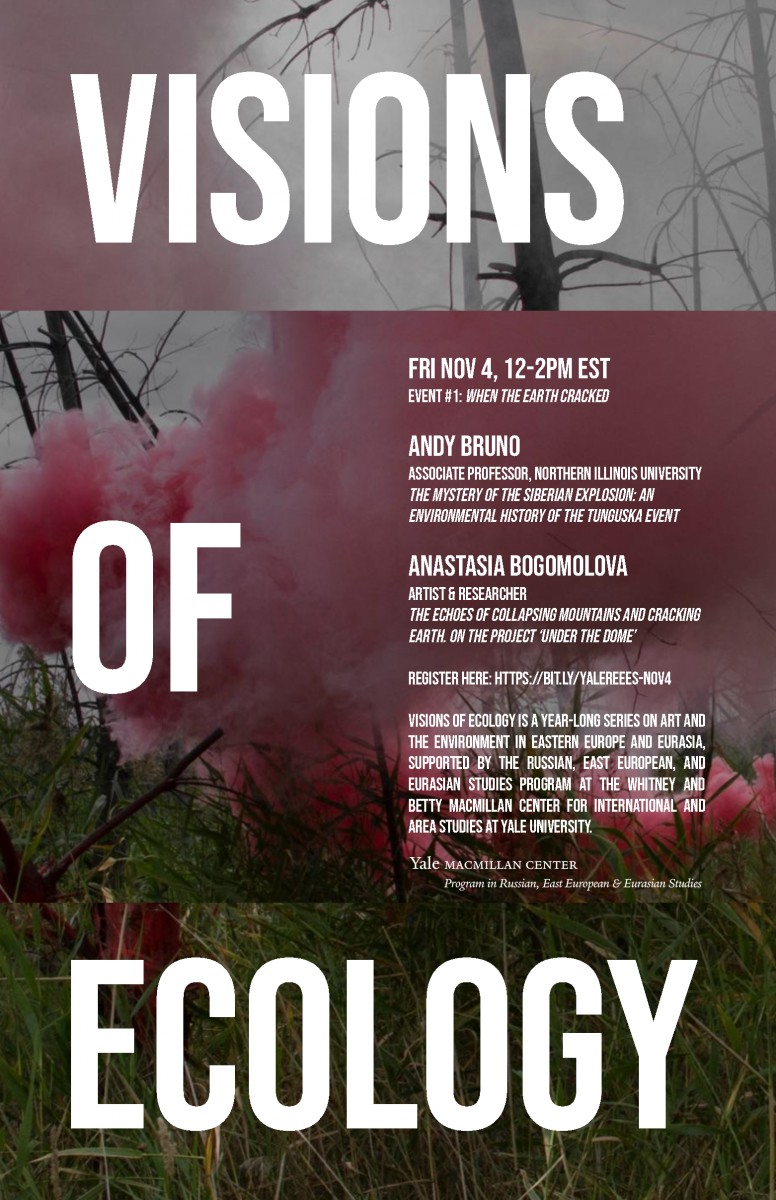
Visions of Ecology
Visions of Ecology on Art and the Environment in Eastern Europe and Eurasia Lecture Series 2022-2023
VISIONS OF ECOLOGY IS A YEAR-LONG SERIES ON ART AND THE ENVIRONMENT IN EASTERN EUROPE AND EURASIA, SUPPORTED BY THE RUSSIAN, EAST EUROPEAN, AND EURASIAN STUDIES PROGRAM AT THE WHITNEY AND BETTY MACMILLAN CENTER FOR INTERNATIONAL AND AREA STUDIES AT YALE UNIVERSITY.
Watch video recordings on the Yale European Studies Council YouTube chanel.
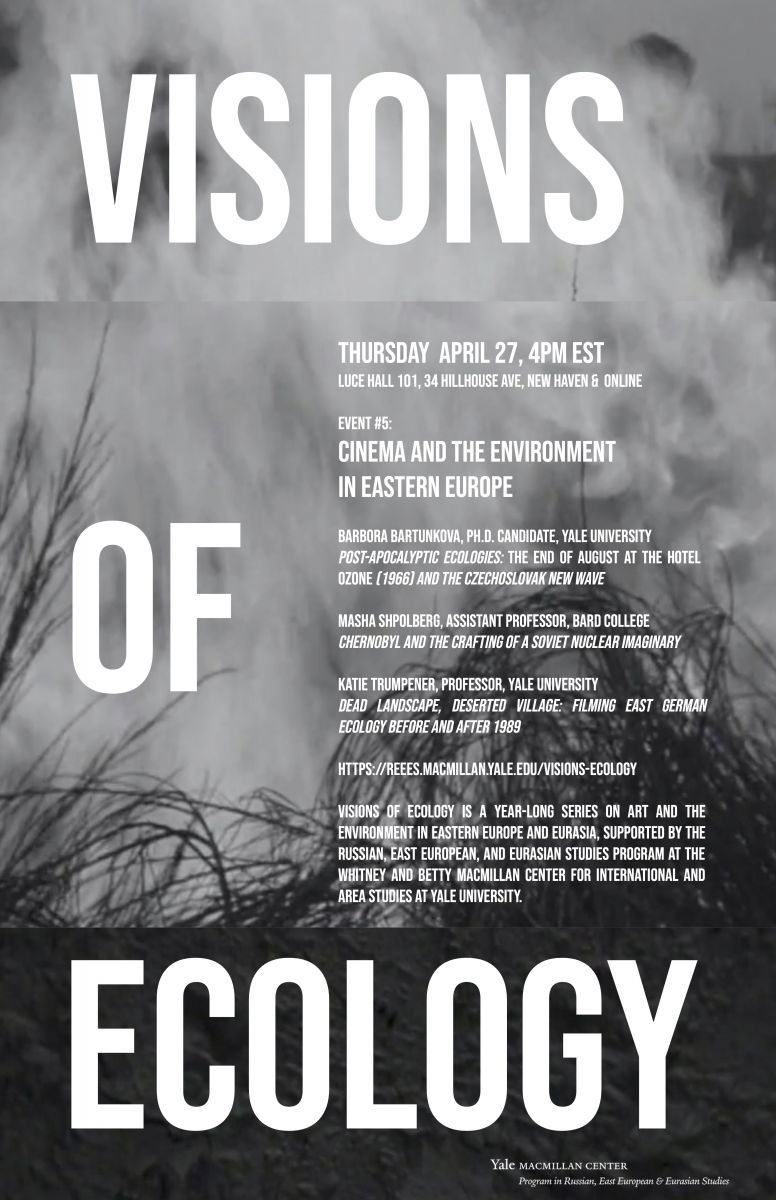
Dr. Victoria Donovan is a Senior Lecturer in Russian and Director of the Centre for Russian, Soviet, Central and East European Studies at the University of St Andrews. Her current research is on the industrial history and heritage of the Ukrainian East, also known as Donbas, questions of heritage management and manipulation and the role of the industrial past in forming community identities and politics. Donovan is the co-author with Darya Tsymbalyuk of Limits of Collaboration: Art, Ethics and Donbas (Rosa Luxemburg Stiftung, 2022), and co-editor with Iryna Sklokina of Donbas Imaginaries: Heritage, Culture, and Community, a special collection published with REGION: Regional Studies of Russia, Eastern Europe and Central Asia in 2021. Before she began her research in Ukraine, she worked on Russian cultural nationalism and heritage politics in the historic northwest of the country. Her monograph, Chronicles in Stone: Preservation, Patriotism and Identity in the Russian Northwest was published with NIUP imprint at Cornell in 2019. Donovan’s current research engages with the public, civic and engaged humanities, and her methodological writing in this area has been published in Modern Languages Open and is forthcoming in 2023 with Canadian Slavonic Papers. Victoria’s research and knowledge transfer work has been recognised with prestigious national prizes and grants, including an Arts and Humanities Leadership Fellowship, British Academy Rising Star Engagement Award, and an AHRC/BBC New Generation Thinker award. Her new book Monotown: Tales of Resistance from the Ukrainian East will be published by Daunt Books Publishing in 2024.
Watch video recording on the Yale European Studies Council YouTube chanel. Read event recap on the Yale REEES website.
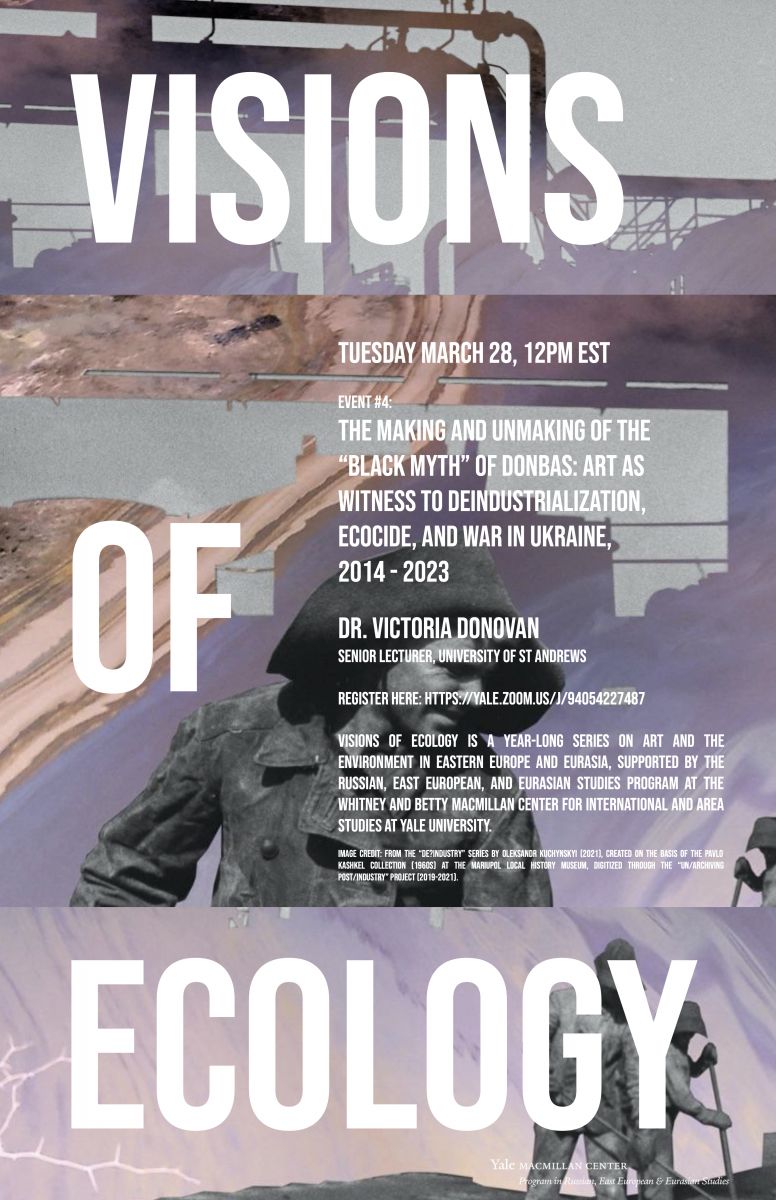
EVENT #3: METHODS AND CASE STUDIES | THURSDAY, FEBRUARY 9, 2023, 12:00pm ET
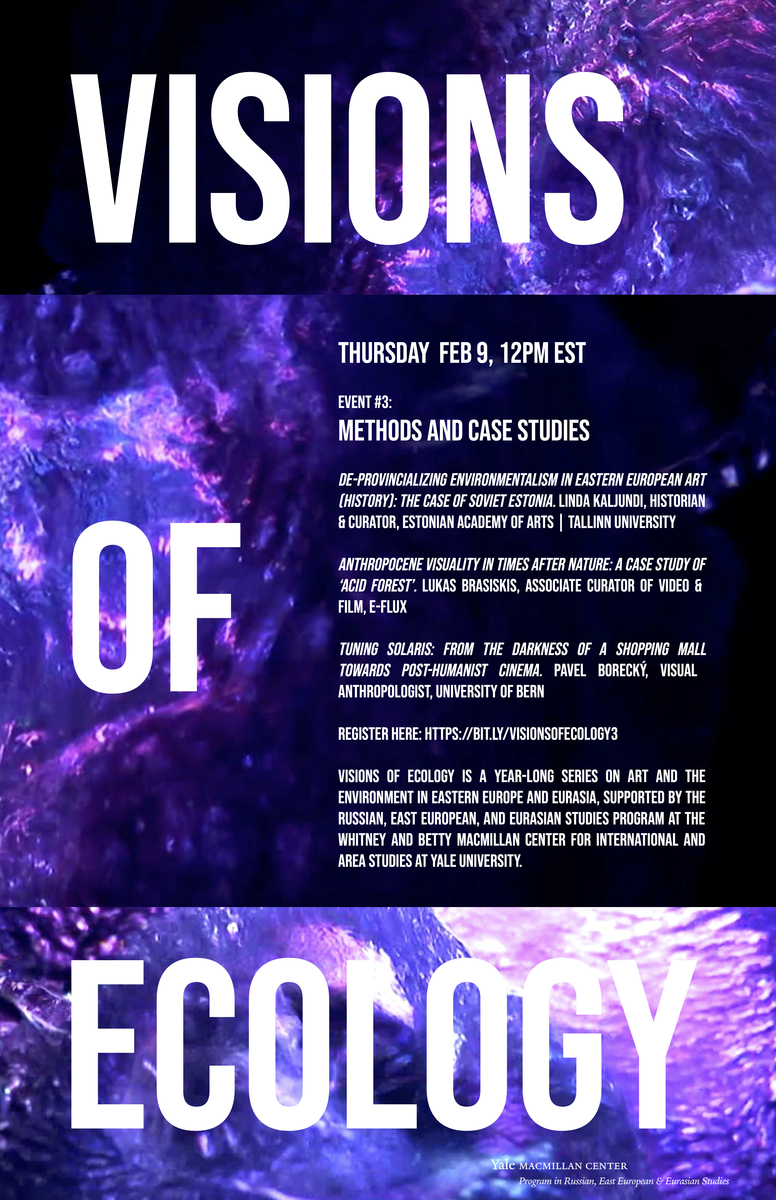

EVENT #2: SWEET RUINS: INFRASTRUCTURES OF THE SOCIALIST ANTHROPOCENE | THURSDAY, DECEMBER 8, 2022, 12:00pm ET
The hollowed-out spaces of derelict sugar factories documented by Slovak artist Ilona Németh in the project Eastern Sugar (2018-21) register the social impact of deindustrialization and symbolize the broken promises of the post-communist transition. The demise of the East European sugar industry also raises questions about the disappearance of the culture, lifestyles, as well as attitudes and practices towards the natural world, that grew up alongside socialist infrastructures. What can be learned from the ruins of sugar factories about the distinctive socialist path through the Anthropocene and what parallels can be drawn between the rise and fall of northern sugar beet and the social and environmental histories of southern sugar cane?
Dr. Maja Fowkes and Dr. Reuben Fowkes are art historians, curators and co-directors of the Postsocialist Art Centre (PACT) at the UCL Institute of Advanced Studies. Their publications include Art and Climate Change (Thames & Hudson, 2022), Central and Eastern European Art Since 1950 (Thames & Hudson, 2020) and Ilona Németh: Eastern Sugar (Sternberg Press, 2021). Recent curatorial projects include the exhibitions “Colliding Epistemes” at Bozar Brussels (2022) and “Potential Agrarianisms” at Kunsthalle Bratislava (2021). Their research on the “Socialist Anthropocene in the Visual Arts” is supported by a UKRI Frontier Research grant. www.translocal.org
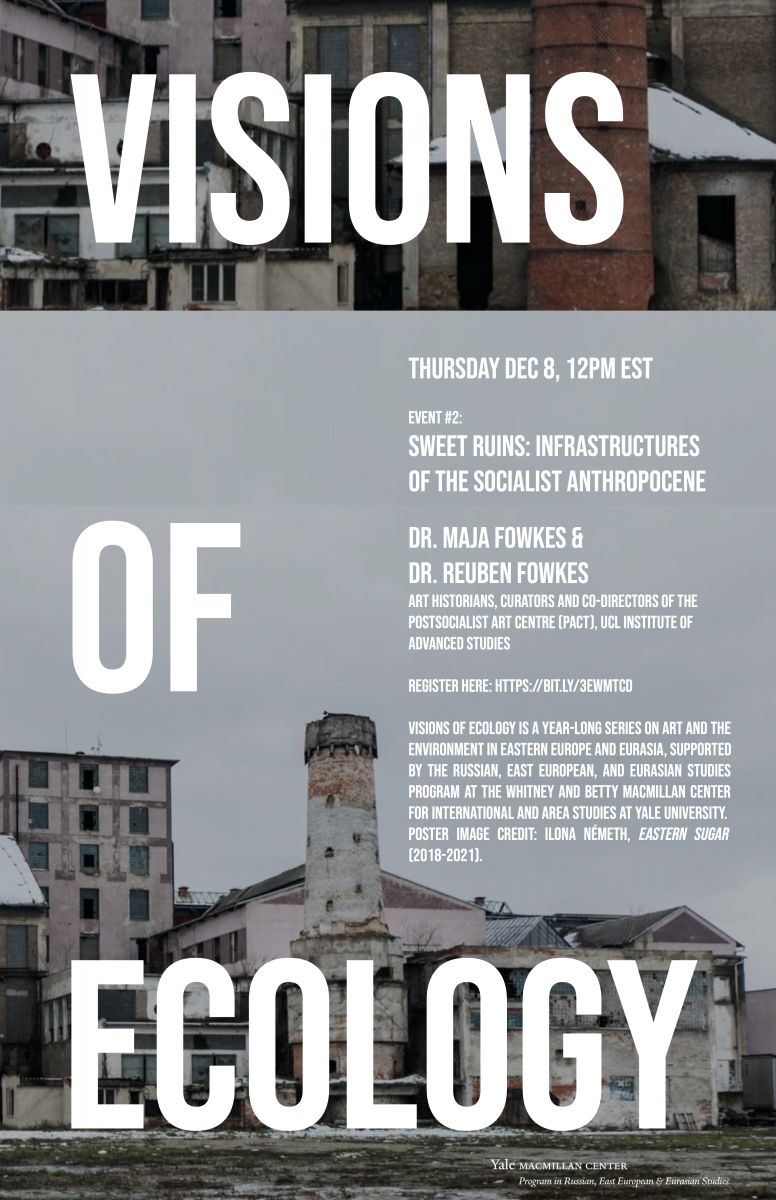
EVENT #1: WHEN THE EARTH CRACKED | FRIDAY, NOVEMBER 4, 2022, 12:00pm ET
ANDY BRUNO
ASSOCIATE PROFESSOR, NORTHERN ILLINOIS UNIVERSITY
“THE MYSTERY OF THE SIBERIAN EXPLOSION: AN ENVIRONMENTAL HISTORY OF THE TUNGUSKA EVENT”
ANASTASIA BOGOMOLOVA
ARTIST & RESEARCHER
“THE ECHOES OF COLLAPSING MOUNTAINS AND CRACKING EARTH. ON THE PROJECT ‘UNDER THE DOME’”
Andy Bruno is an environmental historian of Russia and the Soviet Union with an interest in many aspects of human interactions with the natural world. He works as an Associate Professor in the Department of History and Faculty Associate in Environmental Studies at Northern Illinois University and is the author of The Nature of Soviet Power: An Arctic Environmental History (Cambridge University Press, 2016) and Tunguska: A Siberian Mystery and Its Environmental Legacy (Cambridge University Press, 2022).
Anastasia Bogomolova is an artist and researcher working with performative practices. In their projects, Anastasia turns to imitation of everyday rituals and studies mimicry as a theme, method, and visual language. Anastasia’s work engages with the flexible nature of memory and oblivion and the depiction of traces. Anastasia is a winner of the Present Continuous 2021, a joint initiative of the V-A-C Foundation and the Museum of Contemporary Art in Antwerp (M HKA); the Garage Museum’s Grant Program (2017, 2018); the Credit Suisse and Cosmoscow Art Prize for Young Artists (2016); and participant of artist-in-residence programs in Switzerland, Sweden, and Russia. Anastasia lives and works in the city of Yekaterinburg in the Urals, Russia. https://anastasiabogomolova.com/en
Watch video recording on the Yale European Studies Council YouTube chanel. Read event recap on the Yale REEES website.

